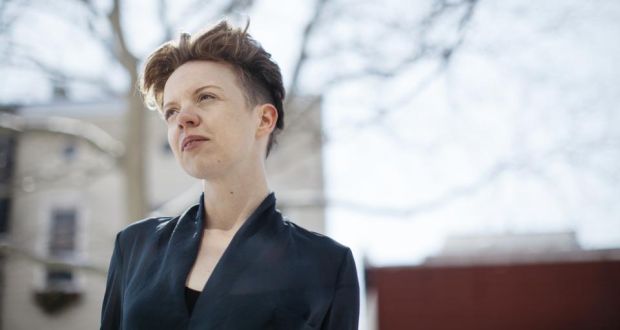
Writings
Tender is a novel centred in Trinity College in the late 1990s, which explores the complex and fumbling relationship between two characters, Catherine and James. The difficulties of homosexuality in 1990s Ireland are examined, although it is unfair to say that Tender is about homosexuality. It is more about the crazed tableau of sensations and emotions that engulfs every naive 18 year old flung into the big city. It is about insecurity, posing, obsession, sexuality: it is drenched in longing and uncertainty. It is an uncomfortably familiar insight placed on a comfortably familiar background.
Each character McKeon introduces is someone we have definitely met before; the accents are the same and the dialogue is laden with the typical banter and sarcasm which dances around real meaning. McKeon conceded that elements of autobiography are inevitable: “Every character is a marriage of the remembered and the imagined, or the inhabited. Catherine has plenty of my younger self and my present self in her, but during the writing of the novel, she and all the other characters became their own selves.”
We see an honest Dublin through Catherine’s eyes. Full of opportunity and danger, full of pompous age and zealous youth. Trinity is only the background to Catherine’s story, but there’s a clear walked-in fondness to the descriptions. “I have very good memories of my time at Trinity,” McKeon agreed. “Those were four great years for me; though they weren’t always easy… I spent a lot of my time in the library, reading as much as I could, and using it as a base from which to wander out onto the ramp at intervals to chat and stare at boys. They were good times.”
McKeon’s debut novel, Solace, won best Irish newcomer at the 2011 Bord Gáis awards, but she is non-committal on how she will fare in this year’s ceremony on 25 November. “The competition in my category is tough, to say the least,” she admitted, referring to the shortlisting of seasoned novelists such as Anne Enright and Edna O’Brien. “I haven’t yet read Edna’s and Kevin’s novels, but I have read all the others and admire them a lot.”
Waking the Feminists
Moving on, we turn to the recent controversy inspired by the release of the Abbey Theatre’s 1916 centenary programme, Waking the Nation. Only one of the ten plays announced was written by a woman, and her commission was to write a children’s version of one of the male-written plays. As a playwright under commission to the Abbey Theatre and a long-standing critic of the gender bias apparent in the Abbey’s programming, McKeon was incensed.
“It bugged me in 2004, when the Abbey’s centenary programme was almost entirely male, but when I saw that the Abbey – and a director I consider intelligent and open-minded – were still up to this shit in 2015, with a programme which was effectively 100% male in terms of playwrights: I was furious.”
She voiced this anger on Twitter alongside a fellow TCD graduate, the set designer Lian Bell. This gave birth to the #wakingthefeminists, which gained support not only from a strong body of Irish playwrights, but from popular icons such as Meryl Streep and Saoirse Ronan. A resultant public meeting was held in the Abbey Theatre, where an incredible turnout of female Irish playwrights and actors gave testimonies to the injustices they felt and the changes they’d like to bring about in Irish theatre.
“It’s far from just an Abbey problem,” McKeon stressed. “Gender bias has long been internalised and operative all across the arts. In theatre, the Gate and the Druid are just as bad, if not worse. Everyone involved in programming needs to cop themselves on and become aware of the unexamined biases with which they work.”
McKeon denied that her voice has been central to the development of the movement, saying: “I’m glad to be on board, but the Dublin-based theatre artists are the ones doing all the hard work. And there’s a lot of work to do.”
When asked if she had any parting advice for Trinity’s young writers, she mentioned Anne Lamott’s book Bird by Bird. “Marina Carr recommended it to me when I took her playwriting class at Trinity in 1998,” she explained.
“I’m a very big believer in what Anne Lamott calls the shitty first draft. Just try to make a habit of writing, even if you’re not happy with what you’re producing at first.”






